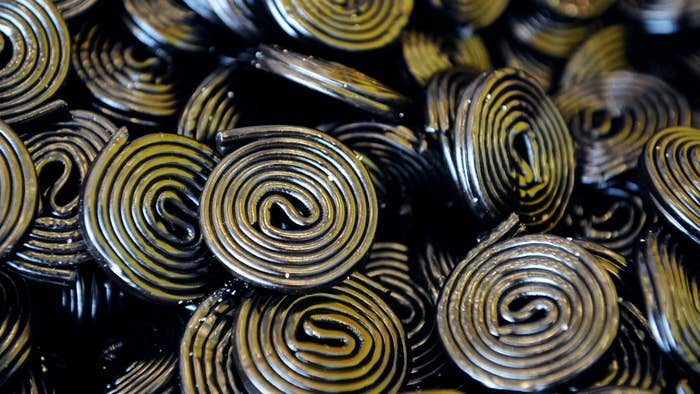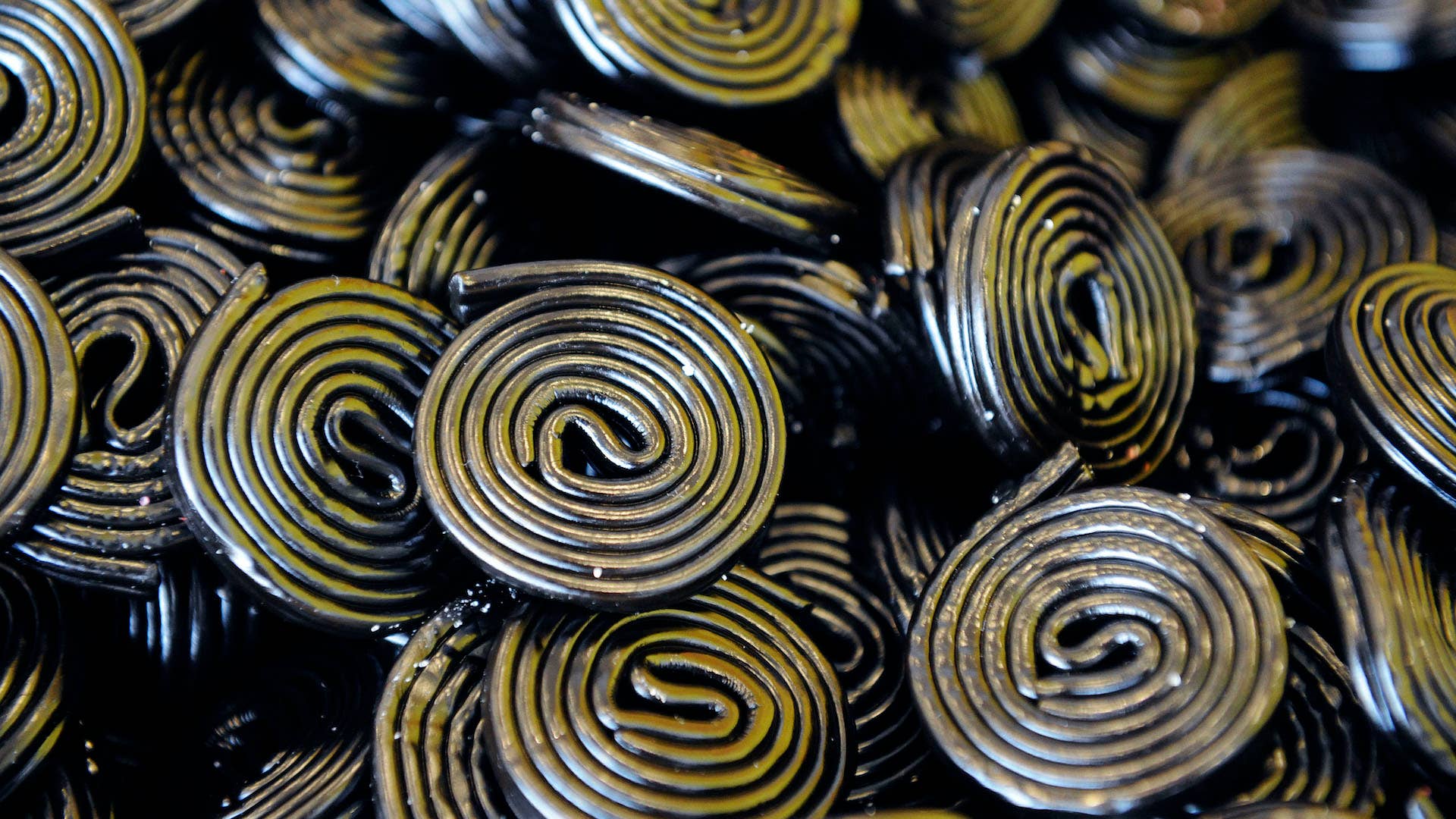
It appears that consuming black licorice daily can be fatal.
CNN reports that a 54-year-old man in Massachusetts died after eating too much of the candy. The man was a construction worker who was generally healthy: he had no history of heart problems, walked his dog regularly, and worked as a construction worker. He also smoked a pack of cigarettes a day and had “a poor diet, consisting primarily of several packages of candy daily,” according to doctors. But it was his switch from red to black licorice three weeks before his death that was deadly.
In January 2019, the man lost consciousness at a McDonald’s. He was later transported to the hospital, where he died the next day. The culprit was glycyrrhizic acid, or glycyrrhizin, a sweetening compound found in licorice root, causing potassium levels in the body to decline, which may lead to high blood pressure, swelling, abnormal heart rhythms, and even heart failure.
“We almost didn’t believe it when we figured it out,” Dr. Jacqueline B. Henson, who treated the man at the hospital, told The New York Times. “We were all shocked and surprised.” The man had low potassium and a heart arrhythmia at the time of his collapse.
Those who are 40 or older should be wary of consuming too much black licorice. Even eating two ounces every day over two weeks can bring on irregular heart rhythm and may demand hospitalization.
However, these adverse effects are reversible and taper off when one stops eating the candy. Potassium levels can return to normal in one to two weeks, while some of the hormonal imbalances and effects on blood pressure can take months to even out.
“Individuals who enjoy black licorice should be cognizant of these potential health effects and should be conscious of the amount they are eating and how often,” Dr. Henson told CNN.
“If they experience any symptoms concerning for electrolyte abnormalities such as muscle weakness or abnormal heart rhythms, they should stop taking black licorice. Individuals who already have either of these problems should probably avoid consuming black licorice,” she added.

